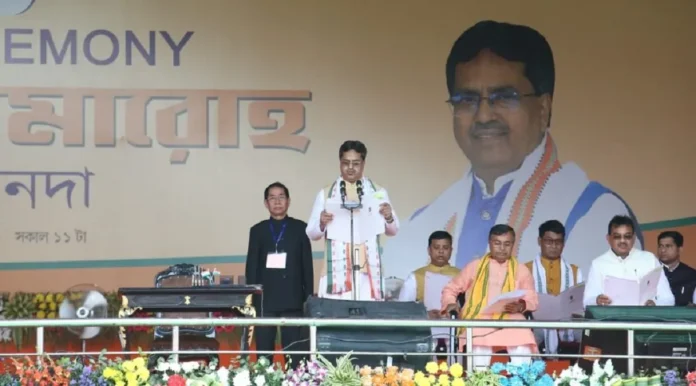The Tripura government has announced its intention to implement the Citizenship Amendment Act (CAA) despite opposition from most political parties. The decision, which comes amidst ongoing debates and protests surrounding the contentious legislation, has reignited tensions and raised concerns about its implications for the state’s social fabric and communal harmony.
The Citizenship Amendment Act, passed by the Indian Parliament in December 2019, aims to grant citizenship to persecuted religious minorities from neighboring countries, including Hindus, Sikhs, Buddhists, Jains, Parsis, and Christians, who entered India before December 31, 2014. However, the exclusion of Muslims from the list of eligible communities has drawn widespread criticism, with opponents arguing that it discriminates against a particular religious group and violates the secular principles enshrined in the Indian Constitution.
The Tripura government’s decision to implement the CAA has been met with vehement opposition from various political parties, including the opposition Congress and Left Front, as well as regional parties like the Indigenous Peoples Front of Tripura (IPFT). Critics of the CAA argue that it undermines the secular fabric of the country and poses a threat to the rights and identity of minority communities, particularly Muslims.
Opposition leaders have accused the ruling Bharatiya Janata Party (BJP) government in Tripura of pushing a divisive agenda and ignoring the concerns of marginalized communities. They contend that the implementation of the CAA will only exacerbate existing tensions and deepen divisions within society.
In response to the government’s decision, protests have erupted in various parts of Tripura, with demonstrators expressing their discontent and raising slogans against the CAA. Civil society organizations, student groups, and activists have also joined the chorus of dissent, calling for the repeal of the controversial legislation and the protection of constitutional values.
Amidst the growing backlash, the Tripura government has defended its decision to implement the CAA, asserting that it is necessary to provide relief to persecuted religious minorities from neighboring countries. Chief Minister Biplab Kumar Deb has reiterated the government’s commitment to protecting the interests of indigenous communities in the state while emphasizing the need to uphold the country’s cultural and civilizational ethos.
Proponents of the CAA argue that it is a humanitarian gesture aimed at providing refuge to persecuted minorities fleeing religious persecution in neighboring countries. They contend that the legislation is in line with India’s long-standing tradition of offering shelter to those in need and upholding the principles of religious freedom and tolerance.
However, critics remain unconvinced, citing concerns about the potential repercussions of implementing the CAA in Tripura, a state with a significant Muslim population and a history of ethnic and communal tensions. They warn that the legislation could further marginalize minority communities and fuel communal strife, undermining the state’s social cohesion and stability.
The controversy surrounding the CAA highlights broader issues related to identity, citizenship, and inclusivity in India’s diverse and pluralistic society. It underscores the need for a nuanced and inclusive approach to addressing the concerns of marginalized communities while upholding the country’s commitment to secularism and pluralism.
As the debate over the CAA continues to unfold in Tripura and across the country, it is essential for policymakers to engage in meaningful dialogue with all stakeholders and take into account the diverse perspectives and concerns of the people. Only through open and inclusive discourse can a consensus be reached on how best to navigate the complex issues at hand and uphold the values of democracy, justice, and equality for all.



